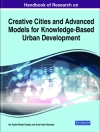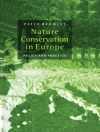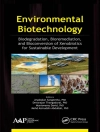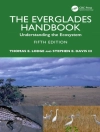This book highlights the institutional, legal, and policy measures to manage water pollution in India, and discusses how effective they have been in improving the overall quality of the country’s surface and groundwater resources. It also reviews the status of wastewater generation, collection and treatment in urban areas to provide insights into the gaps in wastewater treatment. Further, it offers a detailed analysis of the wastewater treatment systems available and examines the human health impacts of water pollution in the country, as well as the future trajectory of investment in wastewater treatment systems and potential sectors for reuse and recycling of wastewater, briefly assessing the market demand for treated wastewater. Lastly, it investigates the factors influencing the environmental sustainability and economic viability of wastewater treatment as well as future areas of research in the field.
Table of Content
Chapter 1 - Introduction.- Chapter 2 - The Legal, Institutional and Policy Regime for the Control of Water Pollution in India.- Chapter 3 – Status of Water Quality in India and Compliance with Pollution Control Norms.- Chapter 4 - Effectiveness of Wastewater Collection and Treatment Systems.- Chapter 5 - Health Impacts of Water Pollution and Contamination.- Chapter 6 - Reuse of Treated Wastewater: Present Scenario.- Chapter 7 - Wastewater Treatment Technologies and Costs.- Chapter 8 - Case Studies on Performance of Wastewater Treatment Systems.- Chapter 9 - Environmental Sustainability and Economic Viability.- Chapter 10 - Growth of Treatment Plants and Reuse of Treated Wastewater.- Chapter 11 - Market for Treated Wastewater in India.- Chapter 12 - Conclusions and Areas for Future Research.
About the author
Dr. Dinesh Kumar received his B.Tech. in Civil Engineering in 1988, M.E. in Water Resources Management in 1991, and Ph.D. in Water Management in 2006. He has 28 years of experience in the field of water resources, and has been the Executive Director of the Institute for Resource Analysis and Policy, Hyderabad, since 2008. He has provided consultancy services to various international agencies, including the World Bank, Asian Development Bank, US AID, the Australian Council for International Agricultural Research, UNDP and UNICEF; and international consulting firms such as Deltares (Holland) and Sheladia Associates (US). He has 180 publications to his name, including six books, seven edited volumes, and numerous book chapters and journal articles. His research interests are in the areas of integrated water resources management in river basins; water use efficiency and water productivity in agriculture; global virtual water trade; methodology for assessing global water and foodsecurity challenges; climate risk in WASH; and socio-economic impacts of large water systems.
Dr Cecilia Tortajada is a Senior Research Fellow at the Institute of Water Policy, Lee Kuan Yew School of Public Policy, National University of Singapore, Singapore. The main focus of her work is the impacts of global events on water resources and the environment. She is the author and editor of more than 40 books by major international publishers, and her work has been translated into Arabic, Chinese, French, German, Japanese and Spanish. She is an advisor to major international institutions like the FAO, UNDP, JICA, ADB, OECD, IDRC, and GIZ and has worked on water and natural resources and environment-related policies in countries in Africa, Asia, North and South America and Europe. She is a member of the OECD Initiative on Water Governance. She is also the Past President and an honorary member of the International Water Resources Association.












